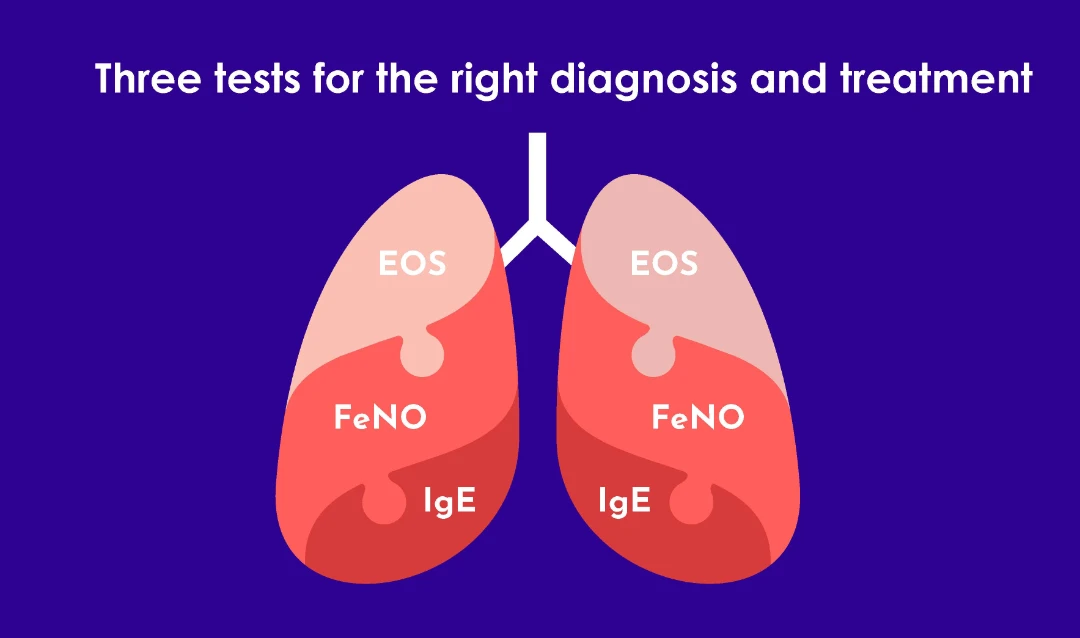Diagnose and evaluate asthma using biomarkers
What are biomarkers for asthma?
A biomarker is a factor that can be measured to evaluate disease progression or resolution. Asthma biomarkers can help determine exactly what type of asthma you have, allowing treatment to be better tailored to each patient's needs. This is especially important for severe or difficult-to-treat asthma. Biomarkers are also used to monitor the course of the disease and see how well a treatment is working.1
New asthma research has identified a type of inflammation called type 2 inflammation, which turns out to be a cause of difficult-to-treat persistent asthma in many patients. Almost 90% of people with severe asthma have type 2 inflammation. It is important to know if you have type 2 inflammation, as it may require a different treatment strategy. By measuring the biomarkers IgE, EOS and FeNO, it is possible to determine whether you have type 2 inflammation or not. The biomarkers can also provide other important information about asthma and how best to treat it.
IgE is a type of antibody that is important in allergic reactions. Elevated levels of IgE may indicate allergic asthma. IgE is measured with blood tests.
Eosinophils are a type of white blood cell involved in inflammatory processes in asthma. High levels of eosinophils indicate a long-term inflammatory state in the body and a higher risk of severe asthma attacks. EOS is usually measured with blood tests.
FeNO2 measures the level of nitric oxide in the exhaled air and is used to assess inflammation in the airways. High levels of FeNO may indicate impaired lung function and a higher risk of severe asthma attacks. A Swedish primary care study (the NOAC study) showed that asthma patients who are followed up and treated using FeNO testing show significantly greater improvement in asthma control and a reduction in the number of moderate asthma attacks than other patients. FeNO is measured by breath test.
If you have asthma that is not controlled despite treatment, it is important to find out what type of asthma you have in order to get the right treatment. Ask your doctor to test these biomarkers - if your health centre does not offer the tests, you should ask for a referral to a specialist!
What is asthma?
It is common for the disease to go undetected. It is high time to raise awareness of asthma and the consequences of the disease.
Treatment of asthma
There are several types and causes of asthma, and both attacks and symptoms can differ in frequency and severity between patients. This also means that treatment need to be adapted to each patient's needs.
- Peters MC, et al. Curr Allergy Asthma Rep. 2016;16:71
- Syk J, Malinovschi A, Johansson G, et al. J Allergy Clin Immunol Pract. 2013;1(6):639-48
Sanofi Belgium, MAT-BE-2500525. V.1. 04/2025


